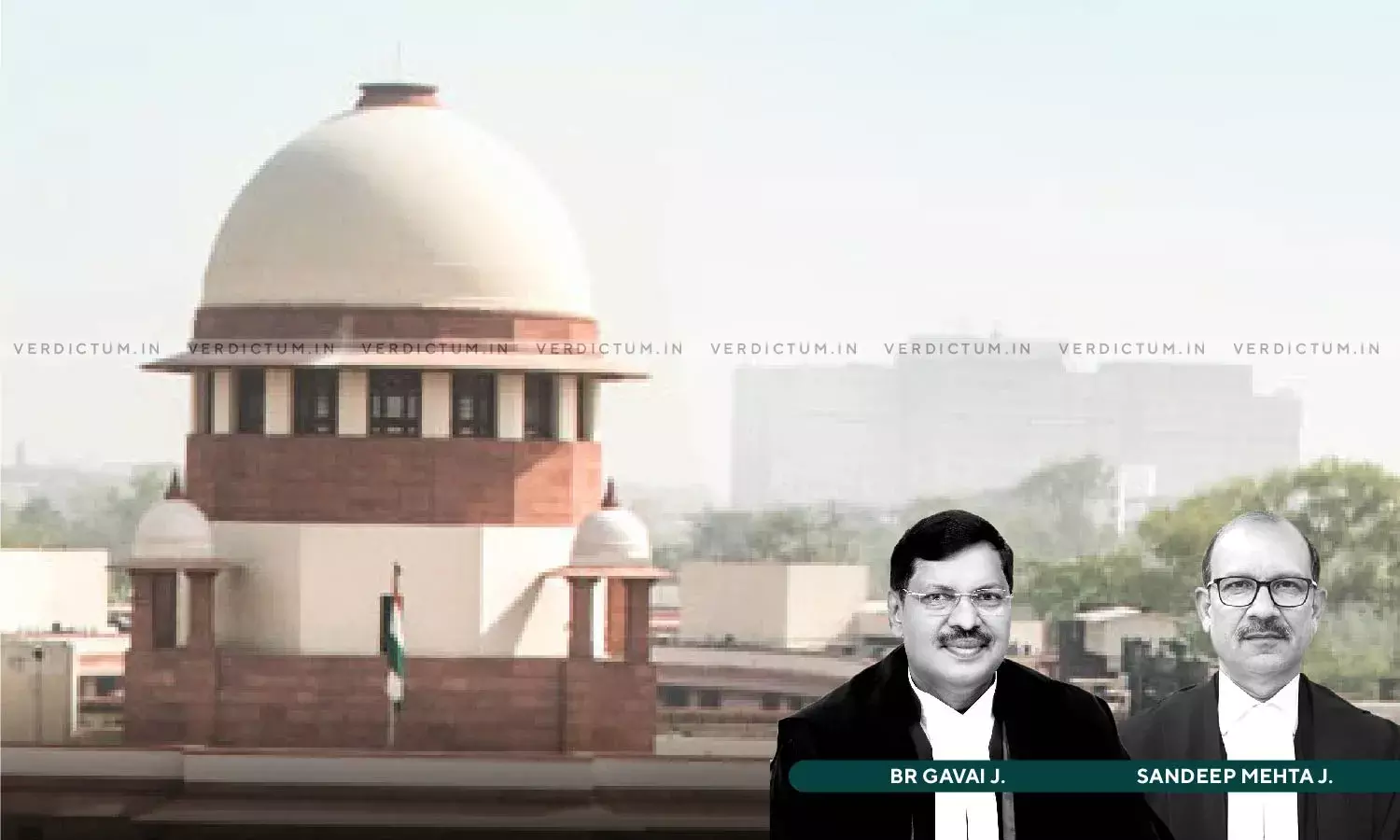In Cheque Bounce Cases, Courts Can Compare Specimen Signature Maintained By Bank With Signature On Cheque: SC

The Supreme Court observed that, in Cheque Bounce cases, the Courts can compare signatures on cheques with certified copies of specimen signatures using powers under Section 73 of the Indian Evidence Act, 1872 (IEA).
The Court dismissed an Appeal challenging the order of the High Court that rejected a plea to introduce additional evidence and involve a handwriting expert opinion.
The Court noted that Section 118(e) of the Negotiable Instruments Act (NI Act), 1881 (NI Act) presumes that indorsements on the negotiable instrument are genuine and in the order in which they appear. To challenge this presumption, the accused must present evidence.
“Hence, in an appropriate case, the certified copy of the specimen signature maintained by the Bank can be procured with a request to the Court to compare the same with the signature appearing on the cheque by exercising powers under Section 73 of the Indian Evidence Act, 1872” the Bench comprising Justice BR Gavai and Justice Sandeep Mehta observed.
Advocate Shariq Ahmed appeared for the Appellant.
An appeal was filed before the Apex Court challenging the order High Court of Gujarat, rejecting the Criminal Misc Application. The appellant faced prosecution under Section 138 of the NI Act for dishonouring a Rs. 10 lakhs cheque. The trial court's rejection of the appellant's request to involve a handwriting expert became final. The appellant's subsequent conviction was upheld during the appeal to the Principal Sessions Judge, Gandhinagar. The appellant's plea for additional evidence and handwriting expert opinion was denied, leading to the dismissal of the appeal by the High Court, prompting this appeal.
The Court noted that the power to record additional evidence under Section 391 Criminal Procedure Code, 1973 (CrPC) should only be exercised under specific circumstances. “Power to record additional evidence under Section 391 CrPC should only be exercised when the party making such request was prevented from presenting the evidence in the trial despite due diligence being exercised or that the facts giving rise to such prayer came to light at a later stage during pendency of the appeal and that nonrecording of such evidence may lead to failure of justice”, the Bench noted.
The Bench noted that the Principal Sessions Judge observed that during the trial, the appellant examined a witness from the Bank of Baroda in support of his defence. However, no questions were directed to this witness regarding the authenticity of the signatures on the cheque in question.
Additionally, the Bench observed that based on the cheque return memo from the Bank dated 26th February 2018, it was evident that the reason for the cheque being returned unpaid was recorded as funds insufficient and the account dormant.
The Court emphasized that Section 118 sub-clause (e) of the NI Act establishes a clear presumption regarding the validity of indorsements made on a negotiable instrument as they appear on it. The Court observed that “the presumption of the indorsements on the cheque being genuine operates in favour of the holder in due course of the cheque in question which would be the complainant herein. In case, the accused intends to rebut such presumption, he would be required to lead evidence to this effect”.
The Bench noted that a certified copy of a document issued by a bank is admissible under the Bankers' Books Evidence Act, 1891 without the need for formal proof. Therefore, in a suitable case, a certified copy of the specimen signature maintained by the bank can be obtained with a request to the court to compare it with the signature on the cheque using powers under Section 73 of the IEA.
In this context, the Bench noted that if the appellant wanted to prove that the signatures on the cheque issued from his account were not genuine, they could have obtained a certified copy of their specimen signatures from the bank and requested the court to summon the relevant bank official to provide evidence regarding the authenticity of the signature on the cheque.
Despite having the opportunity, the Bench noted that the accused-appellant did not question the bank official examined in defence to establish their claim of a purported signature mismatch on the cheque. Therefore, it is the firm opinion of the Court that the appellate Court was not required to assist the appellant in collecting defence evidence. The presumptions under the NI Act, while rebuttable, operate in favour of the complainant, and it is the responsibility of the accused to counter these presumptions by presenting appropriate defence evidence.
The Bench observed that regarding the allegation that the accused-appellant did not receive the notice under Section 138 of the NI Act, the appellate Court is tasked with examining this issue based on the available evidence on record. Hence, the appellate Court did not need to exercise power under Section 391 CrPC to summon the official from the Post Office, and the rejection of the application under Section 391 CrPC was deemed appropriate.
Accordingly, the Court dismissed the Appeal
Appearance:
Appellant: Tariq Ahmed, Vinay Vats, Sunil Kumar Verma, Mayank Dubey, Advocates.
Cause Title: Ajitsinh Chehuji Rathod v State Of Gujarat & Anr (2024 INSC 63)

